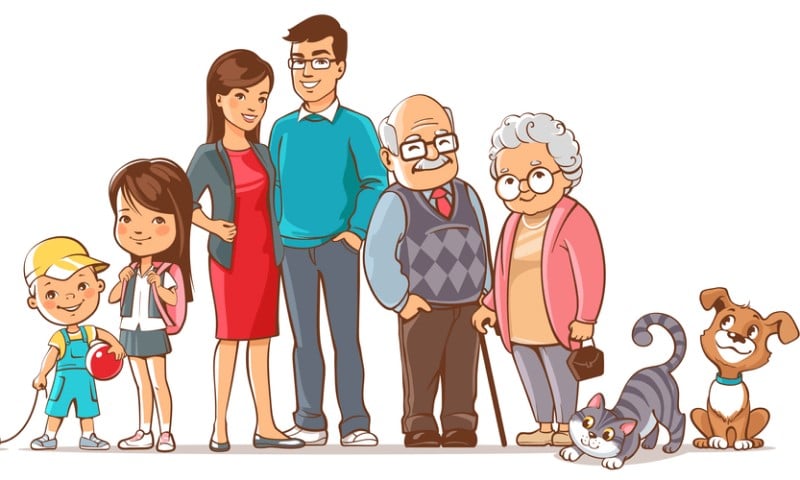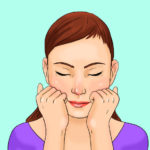For women, knowledge of these stages can help them understand important events such as deciding when to have children and how to navigate through menopause without worry or facing other physical issues. Emotional and mental aspects also need attention, just like our bodies.
For men, it’s the same. These stages serve as a guide, helping us know what to expect and how to smoothly navigate through the cycles. Sometimes, these transitions can be uncomfortable.
Traditional Chinese Medicine (TCM) provides a deep insight into how we age and what influences our aging process. According to TCM, the aging cycle for women is 7 years, while it is 8 years for men.
We all go through stages in life, with each stage having its own distinct characteristics. When we are young, we go through periods of rapid growth and development until we reach adulthood, and then a gradual decline as we age.

These stages have been clearly defined thousands of years ago and recorded in a TCM document called “Hoàng Đế nội kinh” (The Emperor’s Inner Canon). This work was written in the third century BC and is one of the oldest and most revered works in TCM.
Women’s Cycle (7 years)
- 7 years: The female reproductive system begins to develop.
- 14 years: Menstruation begins for women, and they become capable of having children. In TCM, the menstrual period (the first cycle) is an important factor in understanding overall health, especially reproductive health.
- 21 years: The energy of women, especially reproductive energy, fully develops at the age of 21.
- 28 years: Women’s reproductive capability reaches its peak. 28 is considered the ideal age for childbirth in Eastern culture.
- 35 years: The body and overall reproductive capability begin to decline. However, women can still conceive.
- 42 years: Physical energy and reproductive capability decline. Conception becomes more difficult.
- 49 years: Many women start going through menopause and may no longer be able to conceive. Transitioning from the reproductive stage is a significant change in a woman’s life, not only physically but also mentally and emotionally.
Men’s Cycle (8 years)
- 8 years: The male reproductive system begins to develop. Hair and teeth become strong.
- 16 years: The reproductive system is fully developed, and men become capable of reproduction. Organ systems continue to develop, and the body, muscle mass, and teeth grow strong.
- 24 years: Kidney energy develops, and the body becomes robust.
- 32 years: The body reaches its peak physical condition, and all organ systems are healthy and vital.
- 40 years: The body begins a gradual decline. The Yang energy (or fire energy) gradually diminishes, hair starts to turn gray, and teeth weaken.
- 48 years: The decline in health continues. Wrinkles appear, hair grays further, and the body has less energy.
- 56 years: Due to a decline in kidney and liver energy, the body starts to lose flexibility, movement becomes difficult, and stiffness and pain may appear.
- 64 years: Vital energy weakens further, bones become more brittle, flexibility decreases, and teeth deteriorate.
Of course, some things have changed. One of the most notable is that we are living longer. Our longevity is influenced by various factors, including access to clean food and water, as well as significant improvements in our overall quality of life.
Be Informed of the Daily Signs of Aging
 Aging‘>
Aging‘>Are you curious about how your lifestyle habits may be affecting how quickly you age? Today, let’s take a look at what consequences that unhealthy habits and lack of attention to your daily routine could have on the aging process.
Unexpected Cause of Weight Loss Revealed
Maintaining a healthy and attractive physique is not only about dietary choices; there may be underlying health issues that could be contributing to changes in body shape. To ensure a beautiful and healthy body, it is important to recognize and address any health concerns in addition to monitoring diet and exercise.




































